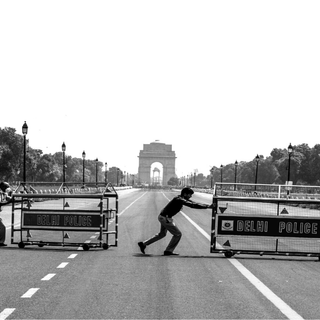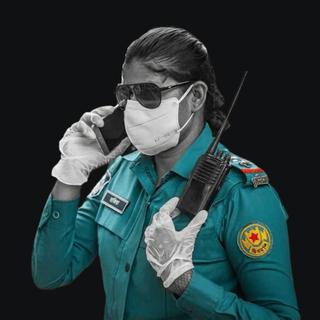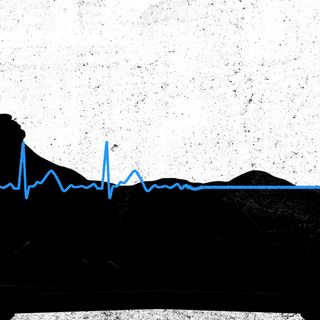On World Toilet Day Thursday, the Indian government’s Ministry of Housing and Urban Affairs issued a challenge to 243 cities across India: to mechanize the cleaning of sewers and septic tanks by April 30, 2021. This is the latest in the government’s attempt to tackle manual scavenging — a particularly dangerous, inhumane, and casteist occupation — that claims the lives of approximately 100 sanitation workers every year.
“The GoI is committed to ensure [sic] that no person needs to enter a sewer or septic tank, unless absolutely unavoidable, and that too only with the necessary protection gear, in the interest of greater public hygiene,” Union Minister Hardeep Puri said in a live YouTube stream. A total of Rs. 52 crores will be distributed among winning cities, the evaluation of which will be carried out in May 2021. In order for the challenge to work, cities will need to create awareness about manual scavenging, as well as develop infrastructure for mechanized cleaning, while complaints and concerns will be heard via a new 24×7 national helpline.
This comes on the heels of an amendment to the Manual Scavengers and Their Rehabilitation Act that is on the Parliament roster this year. The amendment aims to make the ban on manual scavenging more stringent by increasing the fine amount and imprisonment terms for violators. Critics of the bill argue it looks no different than its predecessors that have attempted to tackle manual scavenging, in that the latest version also focuses only on reducing sewer deaths and the number of manual scavengers in the country, without a thought to their rights, wages, protection, and rehabilitation away from the work. This bill, like several that came before it, also ignores the issue of caste, which determines the group upon which the burden of manual scavenging is imposed — namely, the Valmiki community, a sub-caste among Dalits considered one of the most disadvantaged and discriminated against.
Related on The Swaddle:
Sanitation Workers on the Frontlines of the Pandemic Are Overlooked, Unprotected
While the current bill looks promising on paper, critics say these promises are made a few times every decade, and most of them go unfulfilled. For example, a 2013 act states all manual scavengers (and their families), in the event of an accident, are entitled to compensation from the government — which hardly ever manifests. Without tackling the roots of why manual scavenging is still a pervasive practice in India today — caste — despite being banned in 1993, experts argue all new legislation will fail. Successful legislation depends on recognizing how a caste-based hierarchy keeps certain workers not just unsafe in their work, but rights-less even after they’ve stopped working.
For example, manual scavengers are often shunned for their work, forced to live in isolation, with their homes and basic facilities — water, garbage disposal, health care — segregated from the rest of the population, leading to neglect. Due to the work they do, manual scavengers also suffer disproportionate rates of chronic ailments, with a majority of them not living past 40. They die either during their work, due to asphyxiation by sewage or drowning in the sewers, or because of diseases caused by long periods of time sifting through feces and other harmful garbage — tuberculosis, cholera, meningitis, asthma, hepatitis, and skin disorders. The stigma of their work, and their caste, also follow them throughout their lives, with poverty and societal discrimination making it impossible for them to recover.
Because of the casteist nature of such work, it’s important the ambit of protection also widens from manual scavengers to other kinds of sanitation workers, who come into contact with garbage such as sanitary napkins, tampons, and other harmful waste. People who sweep, collect garbage, pick up waste in landfills, clean toilets should all be brought into laws that protect their wellbeing. But the inability of current laws to look at the problem from an overarching lens of caste keeps new policies narrow and hollow, unable to move the needle forward on this pressing human rights issue.




